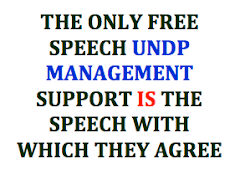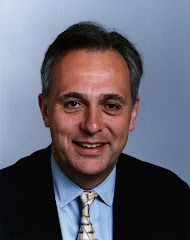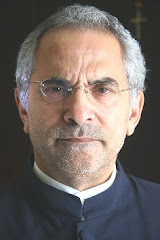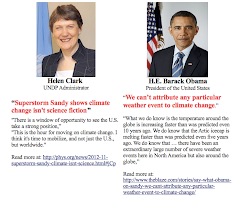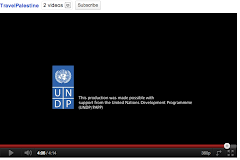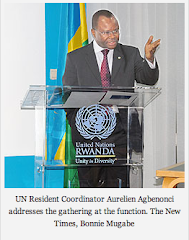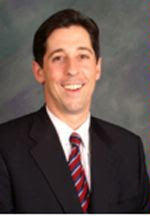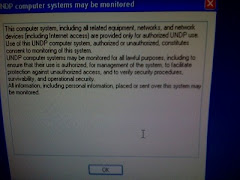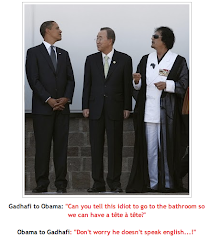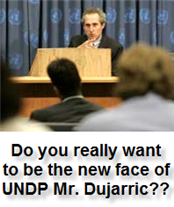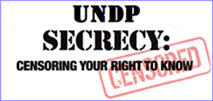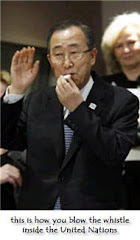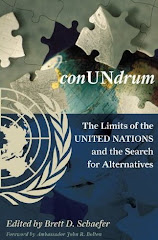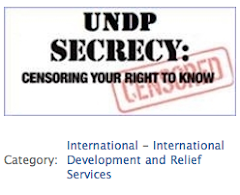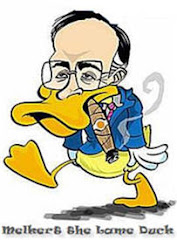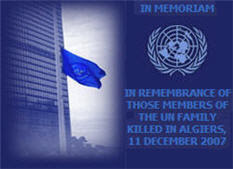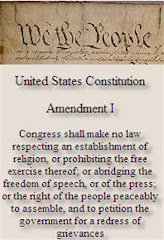UNITED NATIONS, July 30 -- The biting incident at the UN, on which Inner City Press exclusively reported one week ago, has its roots in a glaring case of nepotism in which the UN's top envoy to the Democratic Republic of the Congo, Mr. Alan Doss, lobbied to get his daughter the UN Development Program job effectively held and applied for by alleged biter, Mr. Nicola Baroncini.
When Mr. Baroncini was suspected of knowing of the nepotism, documented by an e-mail to UNDP from Mr. Doss, he was fired, forcibly removed, with pepper spray, from the UN compound and arrested by NYPD on the basis of false accusations. Doss' daughter Rebecca is now ensconced in the disputed UNDP job, while Mr. Baroncini is due in Criminal Court on August 10 on charges of third degree assault.
The case is an early test of UNDP Administrator Helen Clark, in the job for 100 days now, and new UN Security chief Gregory Starr, with whom Mr. Baroncini is asking to meet in order to withdraw the criminal charges against him. Also in question is how Secretary General Ban Ki-moon will react to documented allegations of improper requests and nepotism by his personal envoy to one of the UN's largest and most controversial peacekeeping missions.
Documents filed with the US Department of State, obtained by Inner City Press, show the lead-up to the June 22 pepper spray. On March 16, 2009, after several other UNDP posts ranging from Cambodia to New York, Mr. Baroncini began functioning as assistant to Ms. Ligia Elizondo, Deputy Director of UNDP Regional Bureau for Asia and the Pacific (RBAP).
According to the complaint Mr. Baroncini was "managing her personal agenda; screening inbound and outbound communications; organizing meetings; reviewing documents and other material; distributing tasks within the bureau. I had unlimited access to her UNDP email account. My tasks also included email filing (in my hard drive)."
A month later in April according to the complaint, Mr. Baroncini "witnessed that Ms. Elizondo received several phone calls from Rebecca Doss. Her CV was permanently in Ms. Elizondo’s in-tray. Also while filing Ms. Elizondo’s UNDP email inbox I came across several emails from Rebecca Doss to Ms. Elizondo. In one, Rebecca made reference to the position of 'Special Assistant to RBAP Deputy Director' and said that she would contact Ms. Elizondo at home."
Subsequently, Mr. Baroncini applied for and was one of four short-listed candidates for this post, whose functions he was already performing. Other candidates included Violeta Maximova and Rebecca Doss, whose father Alan Doss, in charge of the UN's billion dollar peacekeeping mission in the Congo, wrote on April 20 to Ms. Elizondo
"Dear Ligia,
This is just to inform that I have advised UNDP in writing that I will transfer to DPKO effective 1 July 2009. I have also spoken to Martin and advised him that I cannot transfer before that date because the new DPKO contractual arrangements only come into effect on the 1 July. He informed me that the ‘deadline’ for the ALD contracts is 15 May so the period of overlap would only be 6 weeks (assuming Rebecca’s ALD would come into force on the 14th May at the latest). I have asked for some flexibility, which would allow a very long serving and faithful UNDP staff member a little lee-way before he rides off into the sunset.
Becky is very excited about the prospect of going to work for you so I hope that it will work out. With my warm regards and thanks,
Alan.
Alan Doss
Special Representative of the Secretary-General United Nations Mission in the Democratic Republic of the Congo"
E-mail in docx text format, in original MSG (Outlook) format
When Inner City Press asked the UN spokesperson's office on July 27 about the and biting incident and the underlying recruitment, Associate Spokesman Farhan Haq said "it had to do with a frustrated jobseeker. The only thing I can say is the information I got from UNDP on this is that the hiring process regarding that particular vacancy at UNDP was filled in accordance with their rules." Transcript here, video here.
But as Doss' email in the complaint shows, since it is illegal for the child of a UNDP staff member, as Doss then was, to be hired by UNDP, Doss asked for "a little lee-way" -- to ignore what he called a six week overlap. The propriety of a UN Under Secretary General making personal contact and applying pressure to waive rules and award a job to his daughter has not yet been addressed.

UN's Doss, at right, with Kouchner and Clooney: Doss is connected
Next, Ms. Maximova and Ms. Doss were declared the top two candidates. Ms. Maximova suddenly was offered and accepted a job at the Clinton Foundation / Initiative, and Ms. Doss was given the job.
Mr. Baroncini spoke with the Director of RBAP, Mr. Ajay Chhibber. Initially, Mr. Chhibber took an interest in hearing out Mr. Baroncini, offering him advice. But once Ms. Elizondo realized that Mr. Baroncini might, in the course of his duties, have become aware of the improper influence in the hiring decision, Mr. Baroncini had his email access terminated and was told to no longer come in to UNDP.
Subsequently, according to the complaint filed by Mr. Baroncini:
I voiced my complete disapproval and said that I will challenge this decision with the appropriate personnel.
I handed to Mr. Chhibber a print-out of Alan Doss’ email to Ms. Elizondo of April 20, 2009 and told him, “In case you do not know, this is the way human resources selection works in UNDP.” I repeated that I will challenge this course of events.
Within a couple of minutes a man arrived. He asked for my UN badge and requested that I leave the building. I began collecting my personal belonging. The whole process took several minutes.
Three UN Department of Safety and Security Guards approached me. Immediately, Peter Kolonias, one of the guards, ordered me to enter office 2312 of DC-1. I complied immediately.
I entered the office and sat down escorted by two UN DSS Security Guards. The door was shut. Shortly, my wife joined me (she works elsewhere in UNDP).
After waiting for some time, I asked the guards about the procedures in place and why we had been waiting for so long. In several instances I was told that Ms. Elizondo was giving a written statement and that once she had completed it would be my turn.
I began asking for access to a lawyer and my consulate. I repeated this request frequently (I would say every 15 minutes) both to the guard inside office 2312 and to other officials that entered the office.
I asked my wife to leave office 2312 and look for Mr. Chhibber and ask him to speak with me. I wanted to understand if he had any control concerning what was happening, and I wanted to share my concerns about this absurd escalation of events.
My wife left the office, but the guards outside invited her to join Ms. Elizondo and Ms. Jovita Domingo, a UNDP human resources advisor, inside Ms. Elizondo’s office. There, they questioned my wife about our private life until a UN official wearing a white uniform came in and my wife was invited to leave by Ms. Elizondo.
Once my wife left Ms. Elizondo’s office, they shut the door and had a meeting. My wife returned to office 2312.
The UN official wearing a white uniform along with the third UN DSS guard, Peter Kolonias, joined the two other UN DSS guards inside office 2312. They asked my wife to leave and shut the door.
The UN official wearing a white uniform swiftly informed me that I had two options: leave the building with them or be handcuffed.
I felt that something very wrong was happening and again I requested access to a lawyer, the Italian consulate and to give a statement.
The second or third time I repeated my requested I was assaulted.
First, Peter Kolonias put me to the floor. The two other guards followed immediately. They tried to immobilize me using every sort of technique. I was kicked repeatedly on the leg, stomach and neck. I was punched repeatedly on the neck, head and face. Twice, at close range, I was sprayed a pepper spray on the face. Immediately, and for about two hours thereafter, I was blinded and suffered tremendous pain on the face and eyes. Other than limited access to water, I was denied proper medical treatment despite my repeated requests.
Eventually I was handcuffed. UN DSS guards brought me outside office 2312 and I waited there for about 1½ hours, handcuffed, sitting in a chair in RBAP Directorate area.
At 2:35 pm, NYPD officers arrived and I was officially arrested
Eventually I was escorted outside DC1 building where an ambulance was waiting
I waited handcuffed until approximately 7:40 pm in a waiting room of Bellevue Hospital. After meeting with a Dr. Falck, I was immediately discharged.
I was brought to a police facility where NYPD took my fingerprints, and I awaited transportation to 100 Centre Street.
After routine procedures, I was jailed until 9:30 am of the following day. The jail was no more than 17-18 square meters. The number of detainees kept changing between 18 and 20 men. No restroom. Primitive sanitation. No hygiene facilities.
My case was reviewed, and I was immediately released without any bail payment. I am set to appear in Court on August 10, 2009."
These techniques -- the pepper spraying of those who ask questions, pressing of criminal charges as retaliation -- are the type of tactics that the UN and officials like Alan Doss criticize in places like the Congo. But the UN engages in them right on First Avenue in New York. Now what will happen? Watch this site.
UNDP has told Inner City Press first that
"There was an unfortunate and isolated incident involving an employee of UNDP on 23rd June 2009. UN Security and the New York Police Department responded, and it is now being handled by the authorities of the host government."
Then after a follow up request by Inner City Press to UNDP spokesperson Stephane Dujarric that UNDP "provide the requested description of the recruitment process, the name of the post and the person awarded, and whether they have any family or personal relationship with the supervisor or selector," UNDP Administrator Helen Clark's spokesperson Christina LoNigro responded that "we cannot comment further on this case at this time as the legal process is ongoing."
* * *






